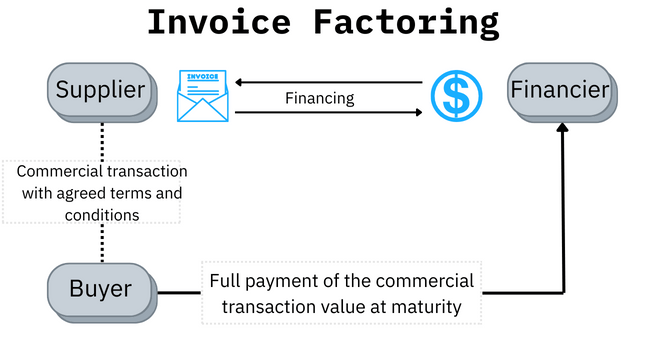The Future of Work: Trends Shaping the Staffing Industry in 2024 and Beyond
Key Trends Redefining the Staffing Industry in 2024
The staffing industry is undergoing a transformation, driven by rapid technological advancements, evolving workforce demographics, and changing work preferences. As we move into 2024 and beyond, understanding these trends is crucial for businesses to stay competitive and effectively manage their workforce. This blog explores the emerging trends shaping the staffing industry and offers insights into how businesses can adapt to these changes.
Overview of Emerging Trends in the Staffing Industry
Several key trends are emerging that are poised to redefine the staffing landscape:
1. Technological Advancements: The integration of artificial intelligence (AI) and machine learning (ML) is revolutionizing recruitment processes. Automated systems are now capable of screening resumes, conducting initial interviews, and matching candidates with job openings more efficiently than ever before.
2. Remote Work and Flexibility: The COVID-19 pandemic accelerated the shift towards remote work, and this trend shows no signs of slowing down. Companies are increasingly adopting hybrid work models, offering employees greater flexibility in where and how they work.
3. Gig Economy Growth: The gig economy continues to expand, with more professionals opting for freelance and contract work over traditional full-time employment. This shift is changing the dynamics of the staffing industry, as businesses seek to leverage on-demand talent.
4. Workforce Demographics: The workforce is becoming more diverse, with significant increases in the number of Millennials and Gen Z employees. These younger workers have different expectations and values, emphasizing work-life balance, career development, and inclusive workplaces.
Impact of Technology and Automation on Staffing Practices
Technology and automation are transforming staffing practices in several ways:
1. Streamlined Recruitment Processes: AI-powered tools can handle repetitive tasks such as resume screening and interview scheduling, allowing recruiters to focus on strategic activities like candidate engagement and relationship building.
2. Enhanced Data Analytics: Advanced analytics provide deeper insights into workforce trends and performance. By leveraging data, staffing companies can make more informed decisions, optimize recruitment strategies, and predict future hiring needs.
3. Virtual Onboarding: With the rise of remote work, virtual onboarding has become essential. Technology enables seamless onboarding experiences, from digital document signing to online training programs, ensuring new hires are productive from day one.
The Rise of Remote Work and Flexible Staffing Solutions
Remote work and flexible staffing solutions are now integral to the staffing industry:
1. Global Talent Pool: Remote work allows companies to tap into a global talent pool, breaking geographical barriers and accessing top talent from around the world. This has led to increased competition and the need for more efficient staffing solutions.
2. Flexible Work Arrangements: Flexible work arrangements, such as part-time, freelance, and project-based work, are becoming more common. Staffing companies must adapt to these changes by offering innovative solutions that cater to the diverse needs of both employers and employees.
3. Employee Retention: Flexibility in work arrangements is a key factor in employee retention. Companies that offer remote work options and flexible schedules are more likely to attract and retain top talent, leading to a more satisfied and productive workforce.
Changes in Workforce Demographics and Expectations
The changing demographics of the workforce are reshaping expectations and demands:
1. Diverse and Inclusive Workplaces: Younger generations prioritize diversity and inclusion. Companies must foster inclusive cultures that respect and value differences to attract and retain diverse talent.
2. Work-Life Balance: Millennials and Gen Z employees place a high value on work-life balance. Employers need to offer flexible schedules, remote work options, and wellness programs to meet these expectations.
3. Career Development: Continuous learning and career development are critical for younger workers. Staffing companies can play a role by providing opportunities for skill development and career advancement.
Predictions and Strategies for Staying Ahead in the Evolving Market
To stay ahead in the evolving staffing market, businesses should consider the following strategies:
1. Invest in Technology: Embrace AI, automation, and data analytics to streamline recruitment processes, enhance candidate experiences, and improve decision-making.
2. Adopt Flexible Staffing Models: Offer a variety of staffing solutions, including remote, freelance, and project-based work, to meet the diverse needs of modern businesses and workers.
3. Focus on Employee Engagement: Build a strong company culture that promotes engagement, inclusion, and continuous learning. Engaged employees are more productive and less likely to leave.
4. Leverage Data-Driven Insights: Use data analytics to gain insights into workforce trends, predict hiring needs, and optimize recruitment strategies.
5. Embrace Diversity and Inclusion: Create an inclusive workplace that values diversity and fosters a sense of belonging for all employees.
The future of work is dynamic and ever-changing, driven by technological advancements, evolving workforce demographics, and shifting work preferences. By understanding these trends and adopting innovative strategies, staffing companies can stay ahead in the competitive market and effectively meet the needs of both employers and employees. As you navigate this evolving landscape, consider partnering with a forward-thinking staffing company like Atlas Factoring to ensure your business remains agile and prepared for the future. Contact us today to learn how we can help you stay ahead in the rapidly changing world of work


VISIT US
HOURS
Monday - Friday
8:00am - 5:00pm MST
Closed All Major Holidays
We provide working capital to businesses in all 50 states.









Share On: